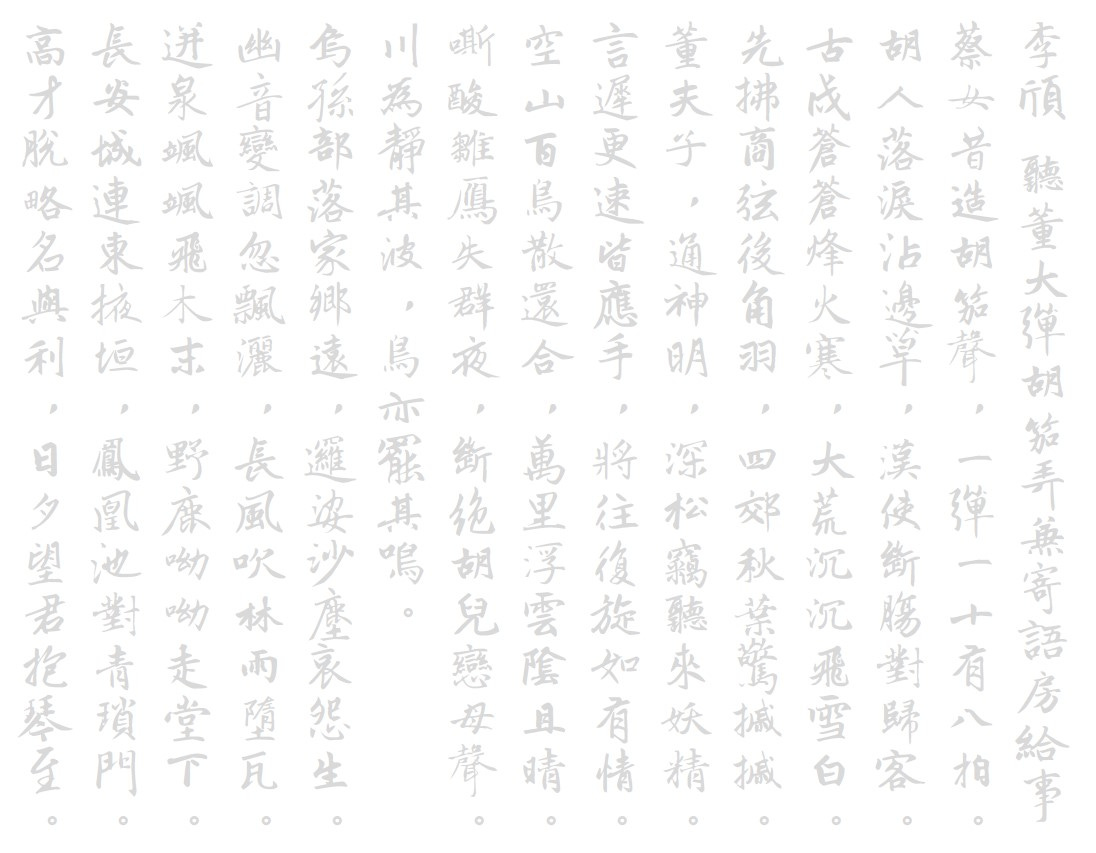Dong Tinglan Plays Eighteen Songs for a Nomad Flute: A Song for Supervising Secretary Fang
Li Qi
In nomad steppes the mournful flute was given voice by Lady Cai
Ten songs and eight composed to mark her long exile
The nomads wet the grassy plains with tears as Lady Cai played
Though some returned to Han, she disconsolate stayed
The guard posts empty
The beacons cold
The wastes are wide and white
With flying snow
First strike the D string
Then E and A
Like whispering leaves
Fall on an autumn day
Master Dong
Enchanter of the air
From the wilds the faery
Creatures crowd to hear
Sings slow then fast
With his hand on the strings
Up and back
Like a living thing
We hear birds of the hills
Scatter, converge
Endless sky
First sunny then obscured
Like the gosling's gasp
Lost in the night
The guttering cry of a nomad child
Mother out of sight
The river wave stills!
The birds quiet their trills!
Like the princess sent to the Aswin, so far from her homeland
Like the princess sent to Lhasa, pierced by wind-blown sand
The sweet, low music
Suddenly blows wild
Whistles through treetops
Rain drums on tiles
A gushing spring
Wets the twigs with spray
Outside the hall
The wild stags bay!
The Ministry of the Eastern Gate is linked to the city wall
The Phoenix Pool by the royal blue door is the Secretaries’ Hall
Fame and fortune forgotten as the evening falls
Great men are waiting for your guqin to call
Notes:
Eighteen Songs for a Nomad Flute was a suite of songs written about Lady Cai Wenji of the Han Dynasty (202BCE-220CE), who was sent as a gift to the Xiongnu, a nomad tribe who lived in modern Mongolia, to the north. Li Qi ascribes the songs to Lady Cai, though they were in reality composed during the Tang Dynasty.
Though called flute songs, Li Qi describes them being played by on the guqin, a stringed instrument, by the great musician Dong Tinglan.



